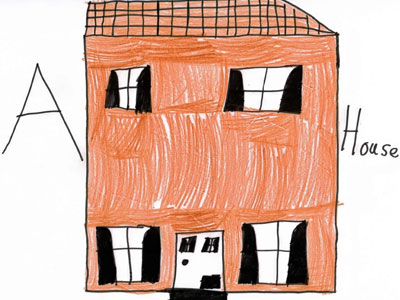
Planning rules may have to be changed to curb the risks faced by children living in residential care, according to a committee of MPs.
In a report examining the government’s new children’s home regulations, parliament’s education committee said it was worried by how homes are often located close to bail hostels and areas with high amounts of drug crime and registered sex offenders.
“It is a matter of great concern that children are being placed in homes located in unsuitable and dangerous areas,” said committee chair Graham Stuart. “The government must act if its latest reforms do not adequately address this problem.”
The committee suggested using planning rules to prevent facilities such as bail hostels opening near existing homes and to stop new children’s homes opening in unsuitable areas. However, it conceded this could put off providers from opening new homes and so said the government should review the impact such reform could have.
The committee also said children should not be placed more than 20 miles from their home and noted the uneven distribution of children’s homes around the country, saying local authorities in areas with few homes should be encouraged to open more.
“We are deeply concerned about the number of children being placed in homes far from their communities and families because of a lack of accommodation nearer home,” said Stuart. “This should only happen where it is the right decision to best meet the needs of that child.”
Despite their concerns, the MPs welcomed the government’s new regulations, which were published in January and followed the child sexual exploitation scandal in Rochdale.
“We believe that the government is addressing the main challenges facing the sector and that its proposals should noticeably strengthen the safeguarding and welfare of children in residential care,” said the report.
But the government must closely monitor the implementation of the changes to ensure that homes and councils work together.
The MPs also said the government and Association of Chief Police Officers should avoid criminalising children by creating a national protocol for how homes should deal with bad behaviour, similar to the protocols that operate in schools.
Recommendations in the committee’s report include:
- Ensuring regulation and inspection of homes address compliance issues such as only half of care leavers getting pathway plans
- Development of a national strategy that seeks to reposition residential care as a positive choice in the right circumstances
- Giving children a bigger say in the recruitment of residential care workers so that children are more likely to relate to the staff
- Better training of children’s home staff and managers to foster a culture that promotes child safety and welfare
David Simmonds, chair of the Local Government Association (LGA)’s Children and Young People’s Board, said there was no ‘one size fits all’ approach to meet the needs of individual children living in residential care homes.
“The flexibility to place children away from the area where abuse or neglect has brought them into the care system can be a vital way of giving them a new beginning away from these problems,” Simmonds said.
“The historic problem of the clustering of lots of children’s homes in a small number of areas that may suffer from higher deprivation is an issue that we agree needs to be addressed. That is why councils, with their knowledge and understanding of local areas, should have greater say over where private care homes are set up.”


 ‘Dear Sajid Javid: please end the inappropriate detention of autistic people and those with learning disabilities’
‘Dear Sajid Javid: please end the inappropriate detention of autistic people and those with learning disabilities’ Ofsted calls for power to scrutinise children’s home groups
Ofsted calls for power to scrutinise children’s home groups Seven in eight commissioners paying below ‘minimum rate for home care’
Seven in eight commissioners paying below ‘minimum rate for home care’ A groundbreaking course preparing care leavers and other young people for independent living
A groundbreaking course preparing care leavers and other young people for independent living 
 Facebook
Facebook X
X LinkedIn
LinkedIn Instagram
Instagram
Local authorities child protection policies are not evidence based because the Department for Education does not require them to collect & hold information on child abuse perpetrators. The question which they all need to be asked is who are their child protection policies designed to protect children from if they are not based on this information.